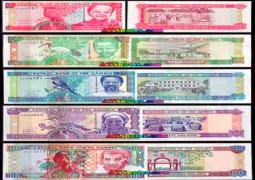UNICEF on Friday 10th June cheered the kick-off of the 2010 FIFA World Cup, as a series of partnerships and programmes around the global football championship help provide children with the opportunity to learn about their world, and harness the power of sports to promote children's rights.
"UNICEF is very excited to be able to give more children the chance to safely experience the thrill of the World Cup, whether they're sitting in the stadium or watching from their own villages," said Anthony Lake, UNICEF Executive Director from New York.
A programme, called World Cup in My Village piloted in two African countries by UNICEF, the Children's Radio Foundation and other community partners.
It will give young people who would otherwise not have the opportunity to see World Cup football matches on large open-air screens and projectors.
To this end, special screens have been set up in the Rubavu District in
In addition to the football, the screens will broadcast important information about children's health and their rights.
In the host country, a special partnership between UNICEF and the South African government will address potential problems that may arise due to the massive influx of people. In a country where 12 million children live in poverty, special attention is being given to unaccompanied minors, some of whom may be induced to travel to the cities where games are played in search of employment opportunities and adventures.
With hundreds of millions of people tuned into the competition and the celebrations, the World Cup is a venue for many important messages about child rights for children and adults.
A massive Red Card communication campaign has been launched that sends out a message that child abuse and exploitation have no place in
A key ally in getting the message out, especially to foreign visitors, is Fair Trade in Tourism in South Africa (FTTSA), an organisation that works alongside the International Labour Organisation (ILO) and now has 30 tourism industry companies signed up to the International Code against Commercial Sexual Exploitation of Children.
These partners, including hotels, car rental companies and tour operators will also disseminate messages about child rights and safety throughout their networks. The Red Card campaign is expected to reach millions of people in
In addition to raising awareness and helping ensure services are available to protect unaccompanied minors and other vulnerable children, UNICEF has worked closely with South
Africa's Department of Social Development, Child Welfare South
Child-friendly spaces, supported by UNICEF and partners, will open at four of the major FIFA Fan Fests in
TV screens are showing matches in the spaces and age-appropriate activities will also be offered. UNICEF, Child Welfare South
HIV prevalence in
"The World Cup gives us a chance to focus positive public attention on the special risks children face in countries like
"We can use the popularity of sports to promote children’s rights and well-being around the world."


